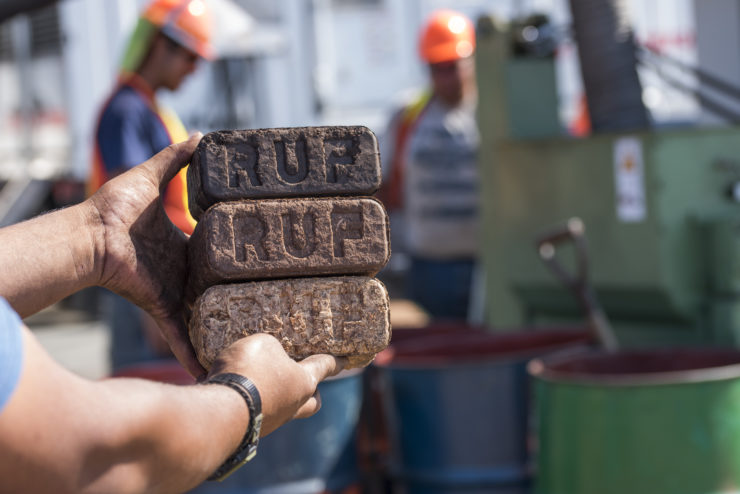We recently completed work on the Waste to Wisdom project that examined the entire supply chain of converting forest waste residues into bioenergy and wood products. The Center’s role was to evaluate equipment that produces biochar, torrefied biomass, electricity, or densified wood briquettes using forest residues as the input feedstock. Collaborators from Humboldt State’s Forestry Department analyzed the upstream collection of forest biomass, and experts from the U.S. Forest Service conducted a lifecycle assessment and economic analysis of the supply chain.

Data collected by the Schatz Center during field tests of biomass conversion equipment were used to:
- identify optimal process conditions,
- specify feedstock limitations,
- measure emissions,
- evaluate product quality, and
- recommend design improvements to equipment manufacturers.
Results and conclusions from the entire project are presented in a special issue of Applied Engineering for Agriculture, published in February 2018. Four principal investigators, including Schatz Center Director Arne Jacobson, summarized the project’s objectives and major conclusions in the introduction article to the special issue. Engineers from Schatz authored four papers, on biochar production, torrefaction and briquetting, and gasification of forest residues:
- Performance and Emissions Control of Commercial-Scale Biochar Production Unit. Results are presented for the performance and emissions characteristics of two biochar machines. Our analysis of biochar quality shows that high levels of moisture and ash content in the woody biomass feedstock reduces the carbon sequestration potential of biochar as a soil amendment.
- Utilization of Wet Forest Biomass as both the Feedstock and Electricity Source for an Integrated Biochar Production System. This paper demonstrated how biochar machines can be integrated into a complete production facility without the use of fossil fuels. We built and reported on a demonstration plant that recovered waste heat from a biochar machine to dry incoming feedstock and used a small fraction of biomass in a gasifier to produce enough electricity to power the entire operation.
- Demonstration of a Pilot-Scale Plant for Biomass Torrefaction and Briquetting. The torrefaction process, which improves the properties of biomass as an energy fuel, was studied in a continuous-flow, mobile, demonstration-scale facility that produced densified torrefied biomass using a dryer, torrefier, and briquetter. This work identified optimal operating conditions that produce torrefied briquettes with higher energy density and greater durability that briquettes produced from raw biomass.
- Performance Analysis of a Biomass Gasifier Genset at Varying Operating Conditions. Small biomass gasifier generators can be used as an alternative to diesel generators to provide electricity to biomass conversion equipment at remote field sites. The performance and emissions from a 20 kW biomass gasifier generator set were analyzed under varying load conditions to determine its suitability to power biomass conversion equipment.
Collaborators at the U.S. Forest Service and the Consortium for Research and Renewable Industrial Materials (CORRIM) used the results collected from testing activities to conduct economic and environmental life cycle analyses of biomass conversion technologies. Field measurements from the Waste to Wisdom project will also be included in our current California Biopower Impacts project, which is evaluating the environmental impacts associated with utilization of forest-derived woody biomass for electricity generation.
This work could not have been completed without close collaboration between our primary industry partners: Biochar Solutions, Inc., Norris Thermal Technologies, and Pellet Fuels Institute, who provided the testing equipment. Other partners that provided key support include the Green Diamond Resource Company, the Redwood Forest Foundation, Inc. (RFFI), All Power Labs, Bear Mountain Forest Products, Colorado Biochar Resources, Pueblo Wood Products, California Redwood Company, North Coast Air Quality Management District, RUF Briquetting Systems, and OMNI Test Labs.
















